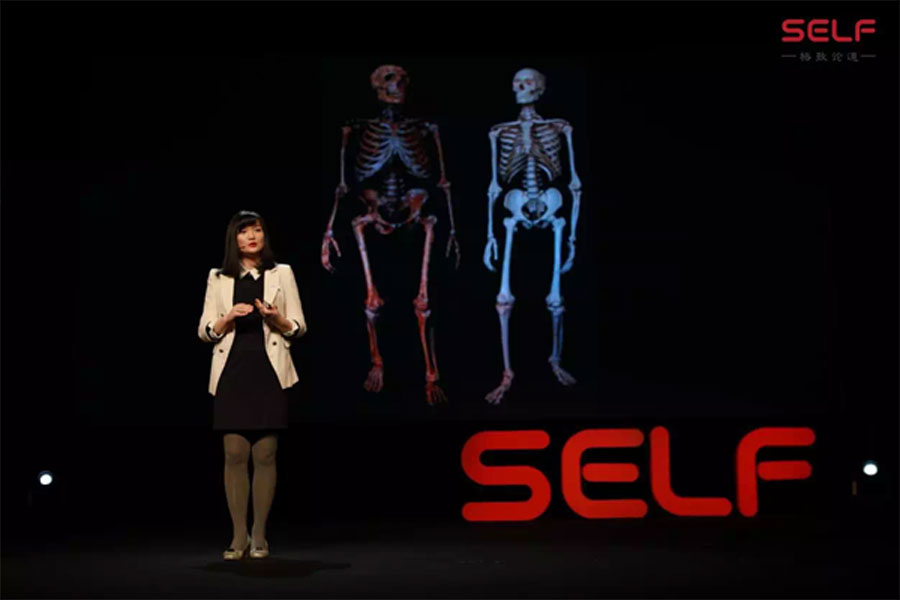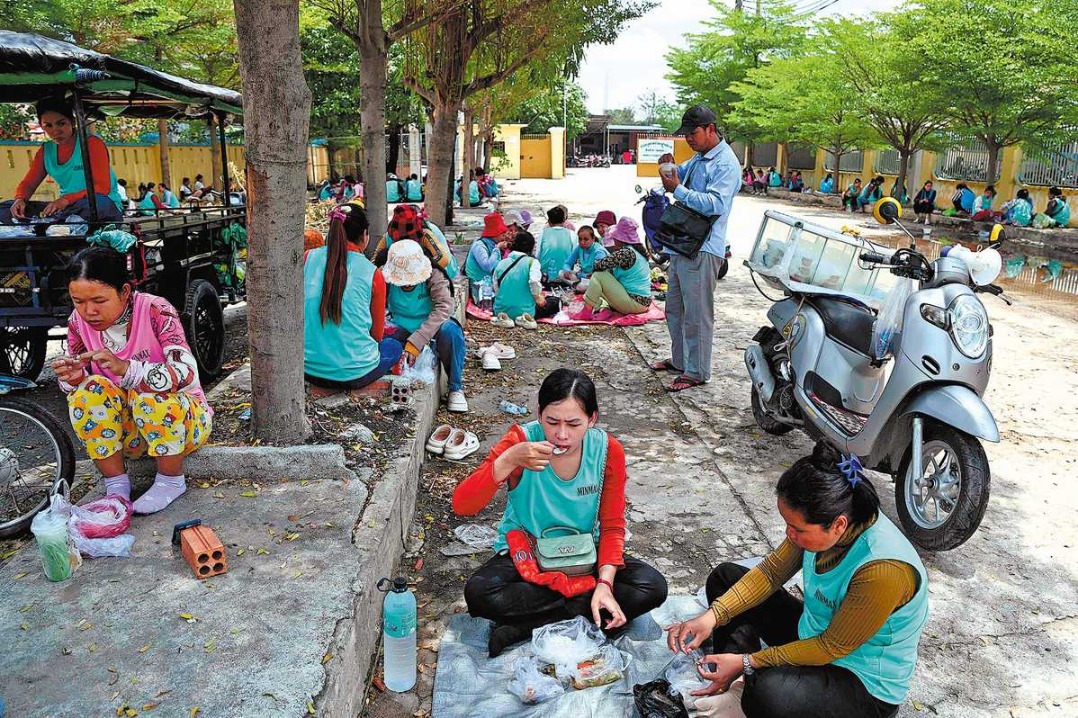Female Chinese scientist blazes new research trail


Chinese geneticist Fu Qiaomei has refreshed study into the status of human beginnings by developing ancient DNA extracting techniques and applying advanced, next-generation gene sequencing techniques to decode the genome of ancient humans.
A man who lived 40,000 years ago and whose remains were found in Tianyuan Cave in Beijing shares the closest genetic relationship with people living today in East Asia, but has no immediate descendants among them. He also shares ancestry with an ancient West Eurasian that is not shared with all ancient West Eurasians, according to the research team led by Dr. Fu, the professor and group leader of the Molecular Paleontology Laboratory at the Institute of Vertebrate Paleontology and Paleoanthropology of Chinese Academy of Sciences (CAS).
These findings help people better understand the structure of ancient populations, shaping up to be a very complex story, with greater diversity and more distant contact between ancient populations.
Dr. Fu, now 34, grew up with a great interest in biology that started when she was teenage, but in college she chose a path to an appreciably more interdisciplinary education that combined courses on computer programming, physics, archaeology and math.
Upon completing her master's degree in 2009, she headed to the Max Planck Institute for Evolutionary Anthropology in Germany to study for a Ph.D in ancient human genomics.
"It sounds like ancient DNA research is something related to animal bones, but it is fundamentally something about next-generation sequencing techniques," Fu said.
Given the technical difficulties associated with ancient DNA studies, any method that helps to identify, analyze or decipher low endogenous DNA will be of great value. With her combined background in arts and sciences, Dr. Fu was used to researching in multiple diverse disciplines, which helped her go further in her studies despite a lack of experience in the field.
As one of only two Chinese scholars to receive a Ph.D degree in evolutionary genetics department at that institute, Dr. Fu has been in the spotlight as having particularly promising potential for turning paleogenetics on its head.
During her studies overseas, Dr. Fu published a string of research papers that shed light on human ancestors. Along with her international team, she helped to decode the genome of the then earliest modern human unearthed in Siberia, with the sample retrieved from a 45,000-year-old femur. In a paper published in 2014 in the prestigious scientific journal Nature, they found that stretches of Neanderthal DNA in his genome were on average 1.8–4.2 times longer than those found in present-day populations. His genome was also used to estimate the date of Neanderthal admixture to between 60 and 50 ka (or 430–232 generations before the time he lived).
"It is so difficult for me to embark on this exploration, because I used to work more with extinct ancient human species. This time, it is something about early modern man," Fu explained.
In June 2016, Fu was honored as one of 10 science stars in China by Nature, for the geneticist's work in redrafting the history of Europe's earliest modern humans and her potential for bringing the same upheaval to Asia's ancient past.
To other's surprise, Dr. Fu moved back to her mother country in 2016, despite having a high-paying job and excellent connections in Germany and the United States.
"Actually, I had never thought of living abroad as I am deeply attached to my Chinese roots and really fascinated about what is happening in East Asia now," Dr. Fu said, adding that the overseas experience did impact her way of thinking but not her lifestyle.
She said the career change was fairly smooth, but challenges still lie ahead.
"In the first two years after I returned and worked as a laboratory head at CAS, the projects I undertook were short of financial support. Most of the projects were not easily accessible to international resources," Fu said.
However, Fu believes her team will definitely obtain more resources if they work hard and continue to output new insights into the genetic prehistory of East Asia.































